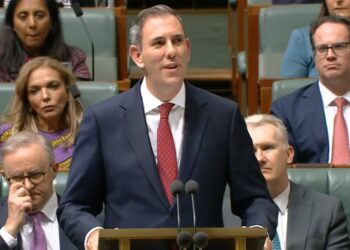In its response to the Australian Law Reform Commission’s (ALRC) Interim Report B into financial services legislation, the Financial Services Council (FSC) said it strongly opposes the idea of delegating more lawmaking powers to the corporate regulator.
The FSC contended that the ALRC’s proposed new legislative hierarchy would give ASIC “excessive” lawmaking power, with the only oversight and control coming from parliamentary disallowance.
“While a similar model has been adopted by the Financial Conduct Authority in the UK, our institutions and processes in Australia are not the same and, consistent with the doctrine of separation of powers in our constitutional model, ASIC’s role is more appropriate to enforce and administer the law rather than to make it,” the group said.
The FSC noted that while ASIC is both a regulator (law-enforcer) and lawmaker, its lawmaking role is theoretically confined to making technical rules or dealing with matters of detail and instruments that should not involve matters of “policy”.
However, it noted that “in practice, this line has sometimes blurred”.
“For example, arguably, the class orders and subsequent legislative instruments that ASIC made in connection with the Foreign Financial Services Provider (FFSP) regime involved significant matters of policy which departed from established guidelines on allocating matters in the legislative hierarchy. ASIC has also imposed positive obligations on the regulated population, which amount to quasi-legislative regimes, through class orders in the areas of custody and investment platforms,” the FSC said.
“Under the ALRC’s proposed new legislative hierarchy, given the seemingly greater scope of lawmaking power to be held by ASIC, it will be even more important to establish clear boundaries and guardrails to ensure that any actions taken by ASIC are appropriately monitored and reviewed to ensure that matters of policy are dealt with by Parliament. Even if they are put in place, the FSC has concerns that in practice these boundaries and guardrails will not be effectively enforced,” it cautioned.
The ALRC released its Interim Report B in October and at the time likened financial services law to a house in need of “serious tidying”.
“In the ALRC’s view, the introduction of a more rational legislative design and hierarchy is key to resolving much of the byzantine complexity that currently afflicts corporations and financial services law,” the commission said at the time.
Speaking to ifa’s sister brand, Lawyers Weekly in November, ALRC principal legal officer (A/G) Christopher Ash explained that under the commission’s proposal, “detail that tailors regulatory regimes for particular products and industry sectors should be moved to thematically organised ‘rulebooks’ (delegated legislation)”.
“In addition, details that help to determine the scope of the act — like exclusions and class exemptions — should appear in one place, which the ALRC has called a ‘Scoping Order’ (also delegated legislation)”.
Responding to the ALRC’s proposal to have ASIC and the Minister granted the power to prepare the Scoping Order and the rulebooks, the FSC said it disagreed.
Instead, the FSC has proposed the creation of a separate, formal body that makes delegated legislation. This body would comprise delegates from the Treasury (representing the Minister) and ASIC, plus potentially an independent chair drawn from a panel of legal and industry technical experts.




ASIC is the regulator NOT the legislator.
ASIC should only oversee the legislation made by Govt in relation to Financial Services & not be providing opinion, recommendations or pressure in relation to any formation of law.
This is the way, good points no extra regulatory groups removed from the coal face and less delegate authority to ASIC.